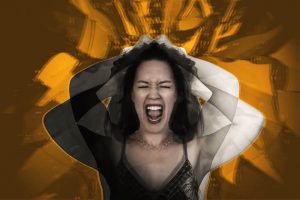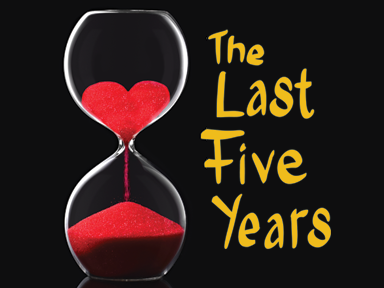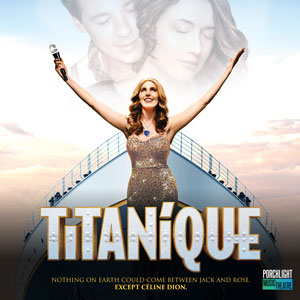
 Two-and-a-Half Stars “Fragmented” is an accurate description of the movie by writer/director Karissa Murrell Myers who plays the main character K. In this autobiographical video, she grapples with issues surrounding identity, race, and culture. Half-Philippine and half-white, she reflects on being multiracial, specifically on how her Asian American appearance and background have influenced her personal and professional life. She describes how being from a conservative family in Idaho has affected her life course, such that she eventually chose to leave a bad marriage and find her way to graduate school in Hawaii.
Two-and-a-Half Stars “Fragmented” is an accurate description of the movie by writer/director Karissa Murrell Myers who plays the main character K. In this autobiographical video, she grapples with issues surrounding identity, race, and culture. Half-Philippine and half-white, she reflects on being multiracial, specifically on how her Asian American appearance and background have influenced her personal and professional life. She describes how being from a conservative family in Idaho has affected her life course, such that she eventually chose to leave a bad marriage and find her way to graduate school in Hawaii.
The overarching theme has to do with fractured identity among Asian Americans who have lost their ethnic roots. The focus is particularly on those who are called “hapas”, a Hawaiian term for Americans who are half-Asian or half-Pacific Islander. This term was once used as a racial insult but is now being embraced by those of mixed-race heritage. With poignant insights on multiculturalism, the story portrays what it’s like to have a foot in more than one culture with a stake in both and neither at the same time. It illustrates how this unique social position can make one privy to a wider perspective on the human condition as compared to the person who knows only of mainstream American culture. Not being able to fit neatly into a predefined box can turn one into a non-conformist by definition.
The movie follows the trajectory of K’s life: her triumphs, her disappointments, and her ruminations. Above all, she is a person who doesn’t feel grounded and constantly suffers from feelings of frustration and anomia. She rarely feels that she belongs. Emily Marso and Brennan Urbi are excellent in playing a myriad of supporting roles that flesh out essential aspects of K’s personality. Through their dialogue, we learn about her complaints about not being fully accepted by those in the majority community: from not getting the roles she has wanted to play in professional theatre to being judged harshly against standards of beauty established by another race and culture. These experiences have obviously affected K’s concept of self-worth as a young woman of color.
This angst is not just unique to Asian Americans but to any racial, ethnic, and religious minority and “marginalized” subculture within the United States. Being a victim of subtle (and not-so-subtle) discrimination can make life very difficult. K captures how tiring it can be to not be fully accepted by the majority while she simultaneously tries to serve as the “perfect” envoy. She has grown resentful of being the lone individual who, by virtue of her example, is supposed to represent her entire ethnic group and, in so doing, make those in the majority more accepting of her and others like her. Even more troubling is to have white people wondering which ethnic minority she is from and asking her pointed questions.
K resents having to work harder to achieve what seems to come more easily to others by virtue of “white privilege” and having to deal with struggles that white Americans seemingly never have to go through. Some people do seem to get all of the luck, however; while for others, there is always an uphill battle. Sometimes a rival for a job or position might also be a minority group member, and the issue is whether to become their ally or a competitor with them. We see how K makes a choice during her stint in Hawaii to reach out to others like herself: namely, kindred mixed-race students and professors, who are likewise on the cusp of more than one culture. Meeting up with associates who share a similar status can be life-affirming, and K finally finds a place within herself where she can acknowledge that she is the person who she is supposed to be.
Murrell Myers does a phenomenal job of using only three actors to play a good number of characters. Director Spencer Ryan Diedrick and assistant director Daniella Wheelock have nicely conceived of all the various scenes and vignettes. It could have been a much too heady performance otherwise.
In an era of COVID and Zoom where filming has restraints, there are bound to be imperfections in the technical aspects of any movie, some of which can be easily remedied; others not so much. At the very least, the audio should have been normalized for the final cut. The sound is all over the place, and I kept having to turn my speakers up and down. In at least one of the outdoor scenes, an artificial fur covering called a “dead cat” or “weasel” should have been placed over the microphone to reduce wind noise. In the last scene—which is supposed to be the climax of the show—the microphone placement was all wrong, and K’s voice is much too thin.
Perhaps most importantly, the entire video needs a good and solid edit. While the ideas behind the movie are perceptive and first-rate, their execution is much too uneven. The biggest fault is that the characters can’t always be taken as seriously as they should be. There is too much unneeded swearing that doesn’t amount to anything, and this makes everybody seem too bitchy and juvenile. Sometimes the oft-repeated scenes with three characters sitting separately in the same vehicle seem superfluous. We don’t need to see the creator of the video sitting on the floor with the script highlighted in front of her saying that putting this whole thing together was a very difficult task that took four years. This scene adds nothing to the show except amateurism. The production as a whole is admirable but too fragmented. It needs to be looked at with a critical eye and revised accordingly.
“Fragmented” is an initiative of The AA Arts Incubator Program of Asian Improv Arts Midwest (AIRMW). It is one of a series of programs under the rubric of “Our Perspective: Asian American Plays.”
The video may be accessed by purchasing an online ticket through Our-Perspective.com through midnight Thursday, November 26, 2020.
Suggested ticket donation is $15, minimum of $5.
To see what others are saying, visit www.theatreinchicago.com, go to Review Round-Up and click at “Fragmented”






More Stories
“The Last Five Years” MILWAUKEE
“The Trial of Themistocles” reviewed by Julia W. Rath
“Titanique”